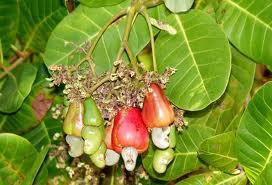 File photo
File photo
Lack of access to cashew nut by local processors has been identified as a major challenge in the cashew industry in Ghana.
Though the country has processing capacity to match production, only seven per cent of its production is processed locally.
The situation is said to be undermining potentials of the industry to transform the local economy through creation of thousands of jobs along the value chain.
This came to the fore when stakeholders from 12 African countries including Ghana attending an international Master Training Programme (MTP) on cashew in Ho, visited USIBRAS Ghana Limited, a Brazilian cashew processing company at Prampram in the Greater Accra Region.
The training was organised by the African Cashew Initiative, now Competitive Cashew (ComCashew) with support from the German Government, FairMatch Support and other agencies aimed at promoting the cashew value-chain in Africa.
A total of 12 local cashew processing companies are said to have folded up due to challenges in procuring enough cashew nut to feed the factories.
Only USIBRAS, the biggest cashew processing company in West Africa, and Mim Cashew in the Brong Ahafo Region are still in operation but below capacity.
The experts said Ghana could process all its production and sustain the industry locally should farmers sell to local processors before attending to buyers from outside the sub-region.
Mr Tarciso Falcao, the Managing Director, USIBRAS Ghana Limited, said the company was operating at 25 per cent of its 35,000 metric tonnes a year installed capacity due to challenges in procuring enough cashew nut to be processed into semi-finished product.
He said the company could employ over 1,000 people should it be operating at full capacity.
Ms Ann-Christin Berger, the Communications Manager of ComCashew, Ghana, said if Ghana processed 65,000 metric tonnes a year out of its 70,000 metric tonnes production, it could create 13,000 jobs directly and about 100,000 indirect jobs.
Checks indicate that the country is losing some 100 million Ghana cedis a year for not processing enough cashew locally.
Global demand for cashew is growing with Africa producing 53 per cent of the world’s cashew.
The crop is said to have potential for climate change mitigation and poverty alleviation and if efficiently exploited could transform local economies by 2030.